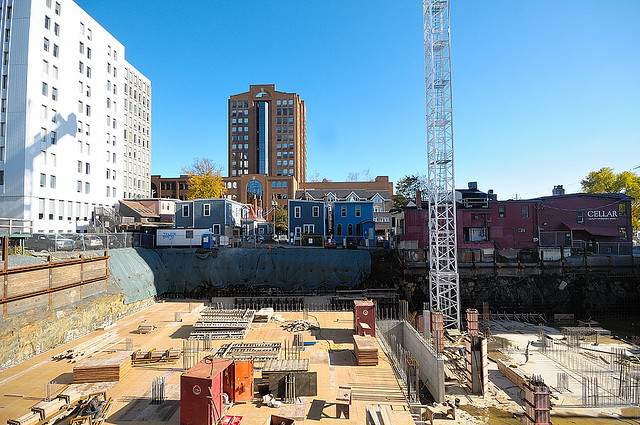Chip in to keep stories like these coming.
Residents attending a community meeting last Thursday did not — as Metro’s Stephanie Taylor put it — “mince words” about a 29-storey commercial and residential tower proposed for the corner of Quinpool Road and Robie St.
“Sixteen of the 19 people who raised their voices did so to blast the proposal.”
George Armoyan’s Willow Tree Tower would be built on land currently occupied by a relatively low-rise 10-storey office building and four-storey parking garage.
Speakers didn’t like the fact the new edifice would instantly win second prize in the tallest building in Halifax lottery, topping at almost double the height officially permitted under the city’s Municipal Planning Strategy. They were also less than enamored by the fact it would ultimately become home to four times the number of people per acre the city says should live there.
To compound those concrete concerns, they point out this tower is only one of a number of community-changing developments approved, proposed or soon-to-be proposed for the area.
There’s Danny Chedrawe’s adjacent 25-storey residential-commercial-hotel building pitched for the Snow’s Funeral Home site on Robie St.; the 3.5-acre former St. Patrick’s High School property across the street, the future of which is the subject of a year-long public consultation process; the already green-lit eight-storey office-and-condo project at the corner of corner of Quinpool and Vernon St., the prime vacant lot south of the Atlantica Hotel, and the land that will become available after Ben’s Bakery shuts down this fall.
At least two — and probably more — of these projects will need “exceptions” from municipal planning strategy and land use bylaws.
That is becoming the rule, not the exception.
“Increasingly,” says architecture professor Grant Wanzel, “our officials are developing the city by exception, ignoring established city charter principles, municipal bylaws and good planning processes.”
That’s why 14 community groups, including one called the Willow Tree Group, got together recently to demand the city suspend negotiating exception agreements with developers applying the current rules until — and unless — they’re legally changed.
Which raises a question for the coalition.
“If developers insist on exceeding certain limits (resulting in higher profits for them), what would HRM expect from them in return?”
It’s a good question. One worth asking — and answering — before exceptions are made.
This article first appeared in Stephen Kimber’s Halifax Metro column.
Photo: Lawrence Plug/Spacing Magazine/flickr
Chip in to keep stories like these coming.



